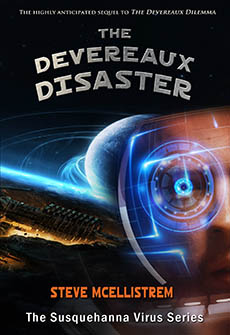We want to know things with certainty. We want to be able to classify actions and things and people into categories we can place in mental files, sorted into neat folders that we can retrieve when necessary.
We dislike doubt.
Our entire existence is given up to learning. We go to school as children, eager to understand the world around us. Our teachers and parents (at least those who are involved in their children’s lives) preach the importance of knowledge to us from an early age. But think back to when you were a baby and you’ll see that we begin to understand how to manipulate the world and its people from an early age.
We cry and people comfort us. We point at objects and people bring them to us or bring us to them. We see cause and effect from before we can articulate what it is we want, which is why some parents teach their children sign language so they can ask for things like “milk” or “more.”
This produces not only the satisfaction of our immediate needs, but also instills in us a general desire to see how we can further manipulate the world. And to do that, we need to understand it. So we look for things we can count on because ultimately they help us attain our desires.
If we don’t know how people will react to various stimuli, we can’t predict whether they’ll do the things we want them to do. So we conduct experiments and we read about the results of other people’s tests of human behavior and our world.
Those results confirm or disprove our preconceived notions of the way the world ought to work. Either way, we learn more, making it possible for us to manipulate better the things and people around us.
This isn’t a conscious practice, for the most part. Generally, we do this on the subconscious level, working toward a more complete understanding of the levers of the world, our ids hoping we can master enough of the machinery to satisfy those instinctive urges we all have.
Eventually, sooner for some of us than others, we come to the conclusion that we know the world. We know our fellow creatures. We know our creator or creators or origins. We begin to be certain we have the answers and we act accordingly.
I know that God loves me and that He wants all people to be like me, believing what I believe, knowing what I “know.” My teachers have taught me well. I am right because they are right. We have been gifted with Truth and all other truths are lesser truths to the great Truth that we are the chosen people. We cannot do evil because we act in God’s name, for His glory, to further His ends. Therefore, whatever we do is right and good and holy.
This kind of reasoning works well for those of us who are on the same page from the standpoint of a given religion/philosophy. But if you are a Muslim and a Christian tells you to convert to Christianity, or if you are a Christian and a Muslim tells you to convert to Islam, you may not be so convinced this is the correct path.
Yet too many people are convinced their worldview is the correct one, and the more convinced they are, the more fanatical they become. I use religion as an example because it’s easy to understand, but the same can be said for political philosophy (Communism vs. Socialism vs. Capitalism) or any other kind of belief system.
When we know we’re right, we’re less tolerant of others who believe differently. That’s when conflict usually arises. So embrace doubt, enjoy uncertainty. It’s uncomfortable at first, but after a while, you get more used to it, more accepting of it, and even derive enjoyment from it.
